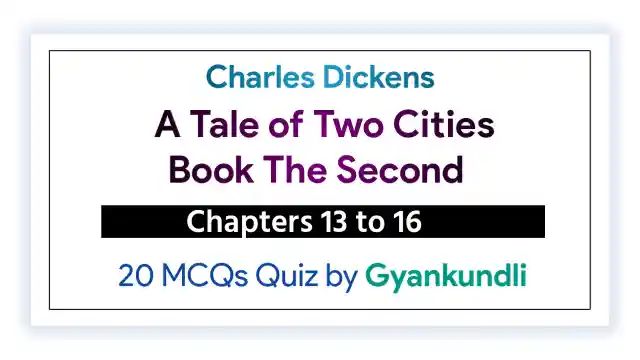One night, a scorpion bit the poet’s mother, a delicate family scene, full of care and concern. Villagers or peasants tried various treatments, blending magic, science, material affection. The mother endured the pain, while the villagers embraced both superstition and rationality. Magic chants and practical remedies, Interwoven in a struggle against the venom’s treason.
A mix of traditional beliefs and modern cures, illustrating the clash of two worlds in their endeavors. Material affection, a powerful force, uniting the family in this challenging discourse.
About the Poet Nissim Ezekiel
Nissim Ezekiel, born on 16 December 1924 in Mumbai, was a notable Indian poet in English. His father was a Botany professor, and his mother was a school principal in Mumbai’s Marathi-speaking Jewish community. Ezekiel, after obtaining a BA in Literature in 1947, went to England to study philosophy. He later returned to India after working on a ship and married Daisy Jacob in 1952.
Following various roles, including teaching, broadcasting, and editing, Ezekiel co-founded the literary magazine Jumpo in 1961. He served as the head of the English department at Mithibai College, Bombay, from 1961 to 1972. His poetry, found in works like “The Bad Day” and “The Exact Name,” reflects personal experiences and explores feelings of loss. Ezekiel’s poems are known for their clarity, evocativeness, and sensuousness.
Two specific poems to be discussed are ‘Enterprise‘ from “The Unfinished Man” and ‘Night of the Scorpion‘ from “The Exact Name.” Ezekiel often used his poetry for personal therapeutic reasons, expressing his thoughts on life, friends, and Indian culture.
Let’s first read the poem NIGHT OF THE SCORPION by Nissim Ezekiel –
Text of NIGHT OF THE SCORPION
I remember the night my mother
Was stung by a scorpion. Ten hours
Of steady rain had driven him
To crawl beneath a sack of rice.
Parting with his poison-flash
of diabolic tail in the dark room-
he risked the rain again.
The peasants came like swarms of flies
And buzzed the name of God a hundred times
To paralyze the Evil One.
With candles and with lanterns
Throwing giant scorpion shadows
On the sun-baked walls
They searched for him: he was not found
They clicked their tongues.
With every movement that the scorpion made
His poison moved in mother’s blood, they said.
May he sit still, they said.
May the sins of your previous birth
Be burned away tonight, they said.
May your suffering decrease
The misfortunes of your next birth, they said.
May the sum of evil
Balanced in this unreal world
Against the sum of good
Become diminished by your pain, they said.
May the poison purify your flesh
Of desire, and your spirit of ambition,
They said, and they sat around
On the floor with my mother in the centre,
The peace of understanding on each face.
More candles, more lanterns, more neighbours,
More insects, and the endless rain.
My mother twisted through and through,
groaning on a mat.
My father, sceptic, rationalist,
trying every curse and blessing,
powder, mixture, herb and hybrid.
He even poured a little paraffin
upon the bitten toe and put a match to it.
I watched the flame feeding on my mother.
I watched the holy man perform his rites to tame the poison with an incantation.
After twenty hours
it lost its sting.
My mother only said
Thank God the scorpion picked on me
And spared my children.
Summary of Night of The Scorpion by Nissi Ezekiel
The poet recalls the night his mother was stung by a scorpion. People gathered, trying to ward off the evil with prayers. Despite their efforts, they couldn’t find the scorpion. As the scorpion moved, they believed its poison affected the mother. The crowd wished for her relief, hoping her suffering would cleanse past sins. They wished the pain would reduce the balance of evil in the world. The villagers or peasants were sitting around the mother, seeking peace and understanding in the face of her pain.
The scene intensifies with more people, candles, lanterns, and rain. The mother is in pain, and the father, a skeptic, tries various remedies including unconventional ones like setting her toe on fire. Despite his efforts, the mother continues to suffer. The poet observes the rituals performed by a holy man to counteract the poison. The poem captures the desperate attempts to save the mother from the scorpion’s sting, blending both rational and mystical approaches.
After enduring intense pain for twenty hours, the scorpion’s venom finally weakened. The mother, relieved, expressed gratitude, saying she was thankful to the God that the scorpion chose to sting her and spared her children. This brief ending reflects the mother’s selfless love for her children despite her suffering.
Analysis of Night of the Scorpion by Nissim Ezekiel
1. Contrast of Urban and Rural Life:
– Ezekiel, known for his urban poetry, takes on a different theme in this poem by portraying a rural setting.
– The poet skillfully presents the dichotomy between city life and the rural environment, offering a living and truthful picture of the latter.
2. Superstition and Scientific Temperament:
– The central event in the poem is the mother getting stung by a scorpion on a rainy night, which serves as a backdrop to explore contrasting worldviews.
– The incident brings forth the clash between superstition and scientific thinking, reflecting the coexistence of these two perspectives within the village.
3. Community Life and Support:
– The vivid portrayal of neighbors swarming to help the mother reflects the strong sense of community in the village.
– Various methods used by the neighbors to mitigate the mother’s pain highlight the essence of collective concern and shared responsibility in the face of adversity.
4. Skepticism and Rational Approach:
– The father’s character represents skepticism and a rational approach, providing a counterbalance to the superstitious elements in the village.
– This adds depth to the exploration of different attitudes toward the mysterious and the unknown.
5. Indian Experience and Imagery:
– The analysis emphasizes the distinctly Indian experience conveyed in the poem, capturing the cultural nuances and practices that are rooted in the Indian context.
– The imagery is described as vivid and sensitive, indicating Ezekiel’s effective use of language to paint a detailed picture of the scene.
6. Effective Use of Language and Parallelism:
– The analysis recognizes the effective use of incantatory lines in expressing the neighbors’ concern for the mother’s recovery.
– The poem’s structure and style showcase an effective use of parallelism, contributing to its overall impact and resonance.
7. Ritualistic Elements:
– The poem is described as enacting an impressive ritual, with the mother’s reaction toward the end serving to nullify earlier responses, whether primitive or sophisticated.
– This ritualistic element adds layers of meaning to the narrative and contributes to the poem’s thematic richness.
Irony in Night of the Scorpion by Nissim Ezekiel
The poem ‘Night of the Scorpion’ by Ezekiel, with the rural setting, unfolds with a unique sense of irony. In this scenario, the speaker interacts with other characters. While there’s humor directed at the villagers or the peasants, the speaker is also emotionally invested in the situation, genuinely moved. The “I” in the poem actively participates and observes.
Ezekiel’s poetry employs two types of irony: one close to satire, where the poet maintains a distance, and the other akin to compassion, where the poet examines the experience as if from within. The early works of Ezekiel lean more towards the first type, becoming less prevalent in his later writings. In the middle poems, both types of irony coexist, often accompanied by a touch of compassion. This compassion serves as a fitting conclusion to the narrative.
My mother only said
Thank God the scorpion picked on me
And spared my children.
The shift or change from the speaker to the mother is of great significance. The return to the mother is a celebration of the liberation from foreign influence.
May he sit still….next birth they said.
Like this:
Like Loading...
Related
Discover more from Gyankundli
Subscribe to get the latest posts sent to your email.










2 thoughts on “Night of the Scorpion by Nissim Ezekiel : Summary and Analysis in 10 Minutes”